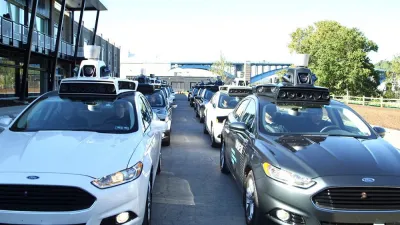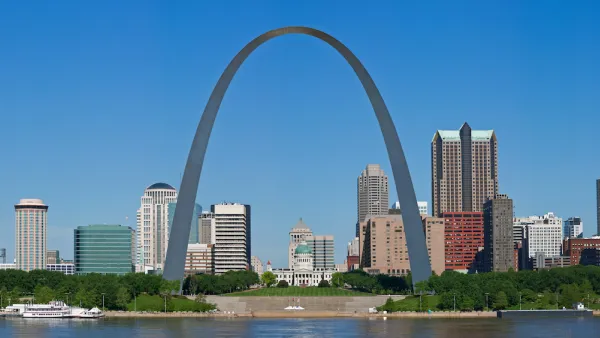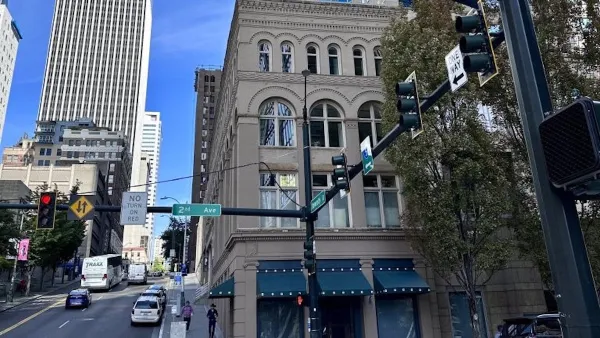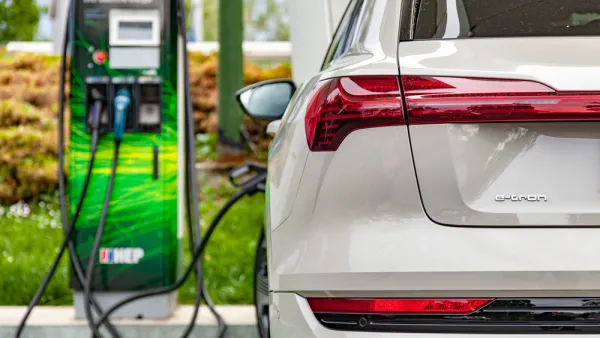In the absence of more enlightened policies, technological change is as likely to increase pollution as to decrease pollution.

To receive the latest news in road lobby advocacy, I get Robert Poole’s "Surface Transportation Innovations" newsletter, which consistently advocates for more roads and less transit. In the most recent edition, he writes: "if zero-emission and increasingly automated vehicles actually are our future, then the current California focus on reducing VMT … is not required." This claim illustrates a common assumption: that we really don't need to do anything at all to reduce vehicle miles traveled, because electric cars will magically save us.
What's wrong with this claim? For one thing, well-intentioned commentators have been making this claim for decades; Poole himself cites a 1998 article. If people keep claiming that clean energy is right around the corner, and clean energy never comes, at what point do we give up on the dream?
More broadly, the "clean car" dream is based on the assumption that technological change is inherently pro-environmental. But in recent years, human ingenuity has been devoted to finding new ways to make our cities more polluted and dangerous than ever.
For example, the rise of Uber, Lyft, and similar companies has made taxicab service cheaper. Of course, this means more people taking cabs and fewer people taking transit; at least one study suggests that the rise of Uber etc correlates with declining transit ridership in big cities.
Meanwhile, car companies have been persuading Americans to buy gigantic trucks, which they call sport utility vehicles (SUVs)—rather oddly, since I don't know of any sports that you can play while driving one. SUVs typically have lower fuel economy than other cars; thus, this so-called advance has actually led to more pollution rather than less pollution. To make matters worse, SUVs have been literally wiping pedestrians off the roads. As SUVs have become more popular, the number of pedestrian deaths involving them has increased by 50 percent since 2013. Because these vehicles are taller, they tend to strike pedestrians in the head and the chest rather than in the legs, thus increasing the chances that a collision will lead to death.
Even if electric cars come, they may not be as good for air quality as we might like to think. Although electric cars do not directly create emissions, they are only as green as the electricity they run on—which means that where the power supply is highly dependent on coal and other fossil fuels, they still create significant greenhouse gas emissions.
I don't know whether electric cars will ever become widespread. But I do know that until they do, other technological change may do more harm than good.

National Parks Layoffs Will Cause Communities to Lose Billions
Thousands of essential park workers were laid off this week, just before the busy spring break season.

Retro-silient?: America’s First “Eco-burb,” The Woodlands Turns 50
A master-planned community north of Houston offers lessons on green infrastructure and resilient design, but falls short of its founder’s lofty affordability and walkability goals.

Delivering for America Plan Will Downgrade Mail Service in at Least 49.5 Percent of Zip Codes
Republican and Democrat lawmakers criticize the plan for its disproportionate negative impact on rural communities.

Test News Post 1
This is a summary

Test News Headline 46
Test for the image on the front page.

Balancing Bombs and Butterflies: How the National Guard Protects a Rare Species
The National Guard at Fort Indiantown Gap uses GIS technology and land management strategies to balance military training with conservation efforts, ensuring the survival of the rare eastern regal fritillary butterfly.
Urban Design for Planners 1: Software Tools
This six-course series explores essential urban design concepts using open source software and equips planners with the tools they need to participate fully in the urban design process.
Planning for Universal Design
Learn the tools for implementing Universal Design in planning regulations.
EMC Planning Group, Inc.
Planetizen
Planetizen
Mpact (formerly Rail~Volution)
Great Falls Development Authority, Inc.
HUDs Office of Policy Development and Research
NYU Wagner Graduate School of Public Service






























